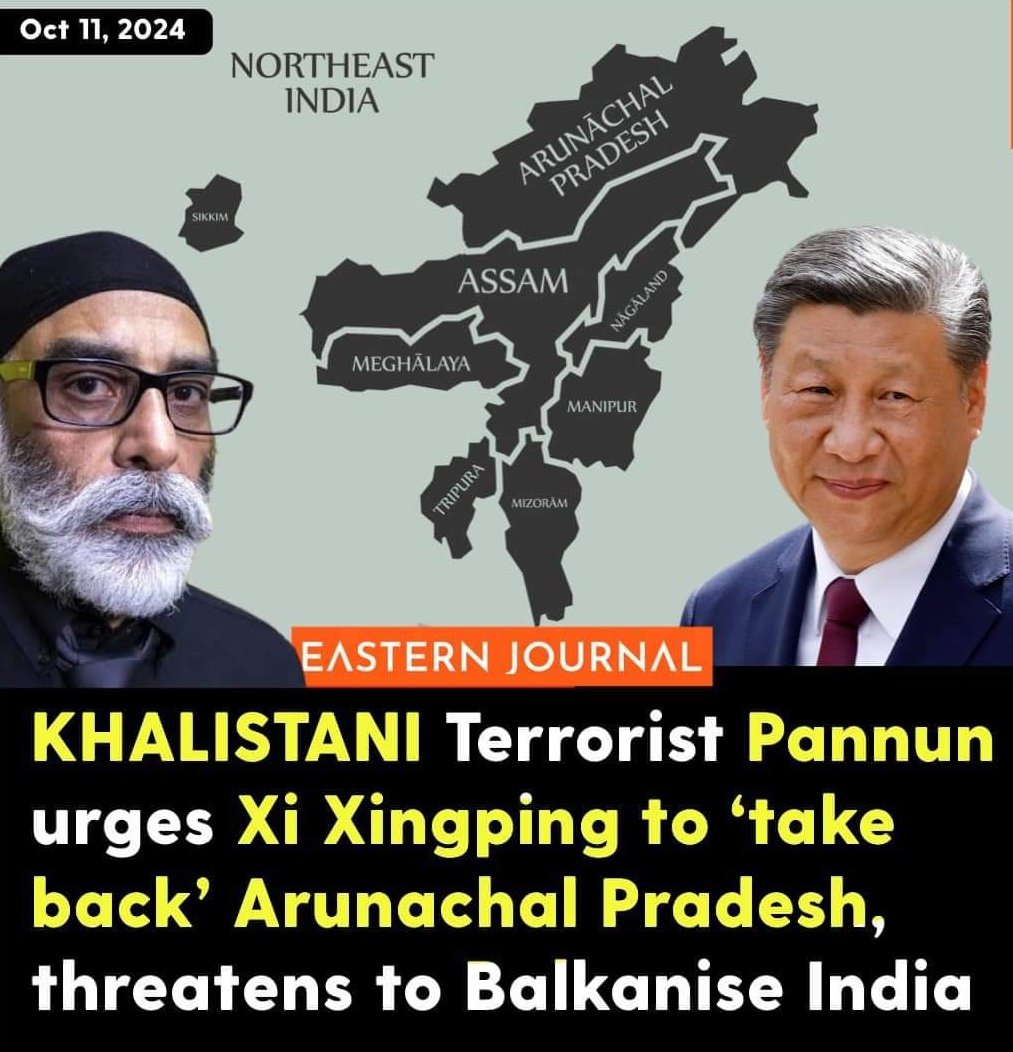SOURCE: AFI

In a recent inflammatory video, Gurpatwant Singh Pannun, a known Khalistani terrorist and the General Counsel of the banned group Sikhs for Justice (SFJ), made controversial remarks, claiming that the Indian state of Arunachal Pradesh is “the territory of China.” In his latest rant, Pannun urged Chinese President Xi Jinping to reclaim the northeastern Indian state, calling for immediate military action. “Now is the time to order the Chinese army to take Arunachal Pradesh back,” Pannun declared, stirring controversy and outrage in India.
Gurpatwant Singh Pannun has long been a vocal proponent of Khalistan, a separatist movement seeking the creation of an independent Sikh state. His organization, Sikhs for Justice (SFJ), has been at the forefront of pushing for the secession of Punjab from India, which has led to his designation as a terrorist by the Indian government in 2020 under the Unlawful Activities (Prevention) Act (UAPA).
Pannun’s activities include advocating for anti-India sentiments, instigating violence, and seeking foreign support to destabilize India. He has been known for his divisive rhetoric, often attempting to ally with external forces to further his agenda. His latest statement regarding Arunachal Pradesh is seen as part of his broader campaign to incite unrest and fuel tensions between India and its neighbors.
Arunachal Pradesh, a border state in northeastern India, has been the subject of territorial disputes between India and China for decades. China lays claim to parts of the region, calling it “South Tibet,” though India asserts that the state is an integral part of its territory. While New Delhi and Beijing have held several rounds of diplomatic talks to resolve the boundary issue, tensions occasionally flare up, with both nations deploying troops to the region.
Pannun’s attempt to drag the Arunachal Pradesh issue into his separatist rhetoric and appeal to China is viewed by analysts as a strategic move to create division. However, his comments have been met with widespread condemnation, as India stands firm on its territorial integrity.
Indian officials and security experts have dismissed Pannun’s claims as mere provocations, designed to create discord. In recent years, India has been increasing its vigilance and fortifying its security measures along the border with China, particularly in Arunachal Pradesh, in light of ongoing disputes.
The Indian government has also cracked down on Khalistani groups and their foreign operatives, including Pannun, whose activities are seen as part of a broader effort to destabilize India. Pannun, living in exile in countries such as Canada and the US, has faced international scrutiny for his involvement in promoting secessionist activities under the guise of human rights advocacy.
Pannun’s outburst fits into a broader pattern of anti-India propaganda spread by extremist groups seeking to exploit tensions between India and neighboring countries like Pakistan and China. In the past, Pannun has attempted to form alliances with other separatist movements and external powers, often resorting to inflammatory and misleading rhetoric. His actions, however, have led to increasing isolation, with the Indian government continuing to monitor and neutralize his efforts.
India’s National Investigation Agency (NIA) has issued warrants against Pannun and other SFJ leaders, and Indian authorities have made efforts to counter the group’s international activities. As India strengthens its diplomatic ties and counterterrorism measures, Pannun’s influence and reach continue to be curtailed.